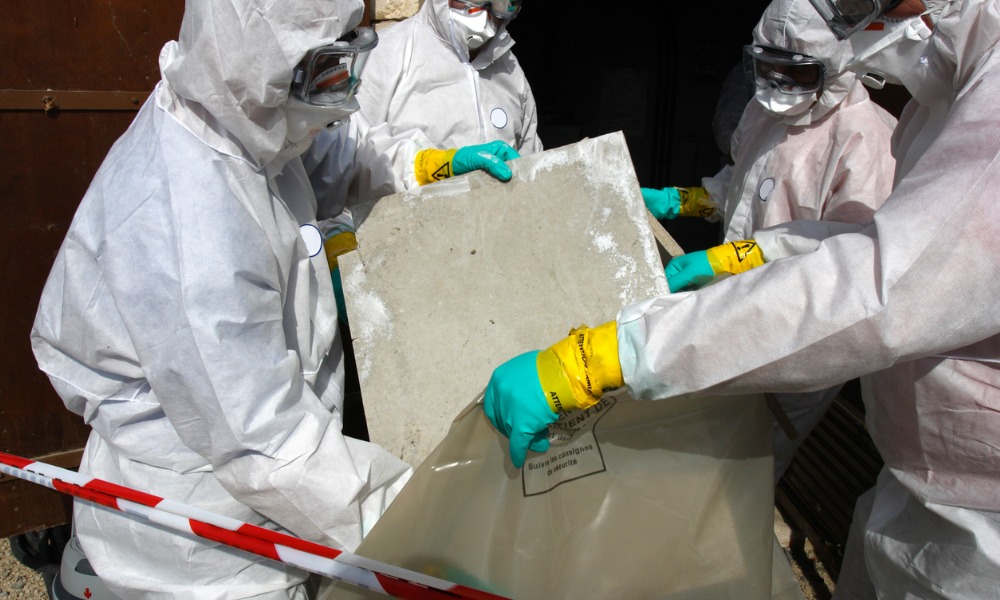Province becomes first in Canada to implement policy which takes effect January 2024

British Columbia has become the first jurisdiction in Canada to enforce a licensing requirement for asbestos abatement contractors. Starting January 1, 2024, all contractors conducting asbestos abatement work in B.C. must be licensed, ensuring enhanced safety measures for workers and the public.
The decision to introduce this licensing requirement stems from amendments made to the Workers Compensation Act in spring 2022. These amendments mandate that contractors engaged in asbestos abatement work must be licensed and can only employ trained and certified workers for this specialized field. The changes were implemented to guarantee the utmost safety for those involved in asbestos abatement operations.
As part of the licensing process, WorkSafeBC will begin accepting applications from contractors engaged in asbestos abatement work across the province starting in September 2023. By the end of the year, a registry of licensees will be made publicly available, promoting transparency and accountability.
Moreover, the amended Workers Compensation Act empowers WorkSafeBC to administer a certification program for individuals performing asbestos abatement work. The mandatory training for worker certification is scheduled to commence this summer, ensuring that workers possess the necessary skills and knowledge to handle asbestos safely.
Since the initial announcement of these new safeguards, WorkSafeBC has been actively developing a framework for the asbestos certification and licensing program. Additionally, policy and regulatory adjustments have been made to align with the legislative changes. To ensure a smooth transition, WorkSafeBC has been engaging with employer and worker groups, providing them with comprehensive briefings on the new requirements.
Asbestos, often referred to as a silent killer, poses severe health risks that may not manifest until years after exposure. According to Harry Bains, Minister of Labour, there have been 280 deaths caused by asbestos exposure in the past five years alone.
Since the year 2000, asbestos has accounted for over 50% of all work-related occupational disease deaths and approximately 33% of all work-related deaths in Canada. With its widespread use in construction until the late 1980s, workers involved in the renovation or demolition of older buildings face significant risks.
The proposed amendments will serve to bolster existing regulatory requirements for asbestos abatement work, addressing a longstanding gap in B.C.'s comprehensive licensing and training system. WorkSafeBC has reported instances of unsafe handling and disposal practices by contractors, some of whom employ workers lacking formal training in asbestos safety protocols.





